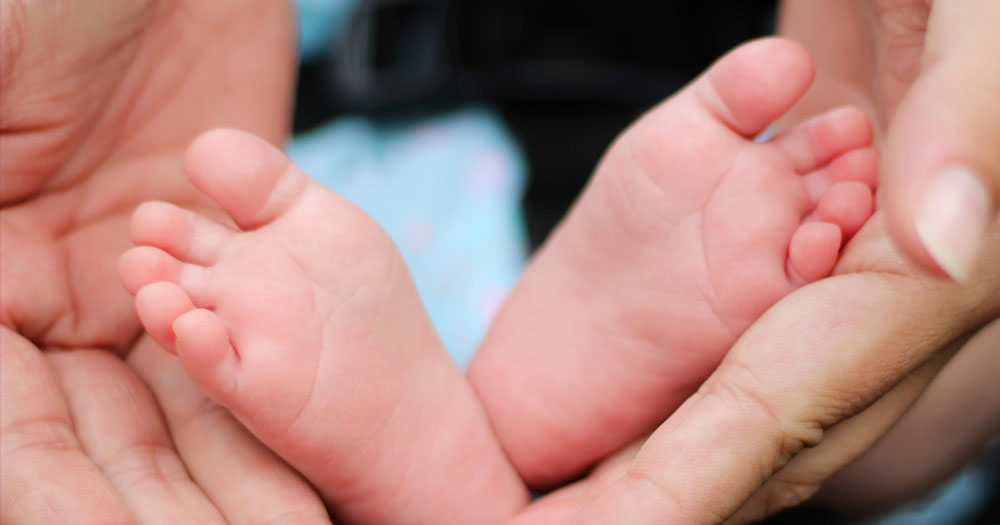Six years after Ireland became the first country in the world to vote for marriage equality in a referendum, LGBTQ+ families still do not have equal rights to their heterosexual counterparts, a mother in a same-sex marriage tells Ryan Tubridy.
Maeve Delargy met her wife Síofra when they were just children starting in their first year of secondary school. They became fast friends and stayed that way until college when they began a romantic relationship.
“We knew we wanted to have a child way before we got married,” Maeve tells Tubridy on The Ryan Tubridy Show, of her journey to becoming an LGBTQ+ mother, “really, from very early on that was something we knew we both wanted…”
“…The first preference was to have biological children ourselves and we had no reason to believe we wouldn’t be able to conceive… with a bit of help, obviously.”
But for Maeve and Síofra as LGBTQ+ parents, starting a family came with complications. As well as navigating the logistics of conception, there are also a number of legal implications to consider, as Maeve well knows.
“So, I’m a solicitor,” says Maeve, “…so our daughter has her birth certificate with both of our names on it, but we had to go to the North to get that. In the UK, the law is different to here; the UK allows two women if they’re married, no matter the method of conception, to be the two named parents on the birth certificate.”
We’re excited to hear @MaeveDelargy and Siofra on the @RyanTubridyShow this morning sharing their family story and their fight to both have a legal relationship with their child. Tune in now to catch them live! #stillnotequal pic.twitter.com/iRyUmQfArj
— Equality for Children (@equalchildren) October 18, 2021
Unfortunately, the same is not true in the Republic of Ireland. Here, Maeve is, in her own words, a “legal stranger” to her daughter, while her wife Síofra is recognised as the mother because she carried and birthed their child.
This would not be the case if Maeve and Síofra had used reciprocal IVF (a process where the egg of one mother is fertilised and implanted into the other mother) to conceive. LGBTQ+ parents who use reciprocal IVF can both be legally recognised on their child’s birth certificate, but this is not a procedure that is readily available.
Apart from the significant financial undertaking, reciprocal IVF also takes a lot of time and comes with its own set of logistical nightmares, including the fact that the process requires parents to go through a fertility clinic and use approved donors.
“We looked into sperm banks, particularly the European sperm bank, and kinda felt that wasn’t for us,” she goes on to say. “We wanted to be able to tell any future children – answer any questions they may have about their donor, you know? So we wanted to know their donor.”
https://twitter.com/GalvinBa/status/1450049439566024704
For Maeve and Síofra, that meant looking for a donor among their friends and fortunately, they have one close friend who kindly offered to help them conceive their daughter.
While the pair are confident that that was the right choice for their family, it does mean that, in the Republic of Ireland, the donor has more legal rights to their child than Maeve does as an LGBTQ+ mother.
“The possibility of this area changing is with the Assisted Human Reproduction Bill which is currently priority legislation on the legislative programme for Autumn,” Maeve goes on to say.
“But it’s at Heads of Bill stage; we’ve no actual draft in yet; we’ve no enactment and we’ve certainly no commencement, so when these laws will actually change could be a long time down the road.”
Good luck to @MaeveDelargy and Siofra speaking on the @RyanTubridyShow this morning about their beautiful family and how their children are being denied equal rights because of how they were conceived. @equalchildren @IrishFamiliesTS @LGBT_ie #stillnotequal
— Ranae von Meding (@ranaevonmeding) October 18, 2021
With LGBTQ+ parental rights still a work in progress, we applaud Maeve and Síofra for sharing their story and highlighting the inequalities they’ve faced in starting their own rainbow family.
We also send our congratulations to them both, as Maeve announced today that she is now pregnant with their second child. Hopefully, their kids will know a future where LGBTQ+ families have all the same rights and their heterosexual peers.
© 2021 GCN (Gay Community News). All rights reserved.
Support GCN
GCN is a free, vital resource for Ireland’s LGBTQ+ community since 1988.
GCN is a trading name of National LGBT Federation CLG, a registered charity - Charity Number: 20034580.
GCN relies on the generous support of the community and allies to sustain the crucial work that we do. Producing GCN is costly, and, in an industry which has been hugely impacted by rising costs, we need your support to help sustain and grow this vital resource.
Supporting GCN for as little as €1.99 per month will help us continue our work as Ireland’s free, independent LGBTQ+ media.
